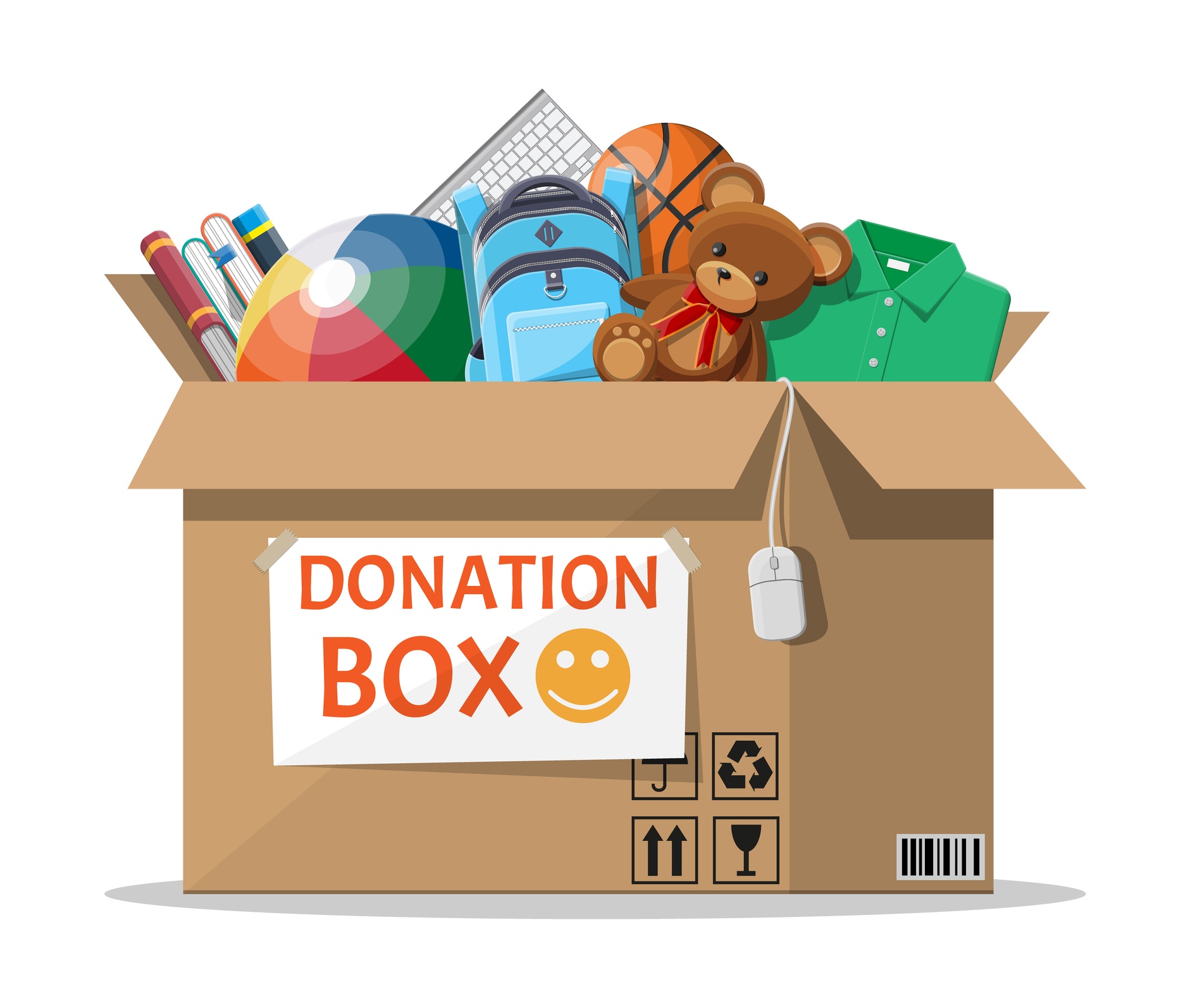
BMc Azurri’s Top Tips To Help Charities Make Most of Unwanted Items
It’s that time once again when we’re inclined to take a look at the contents of our homes and wonder what needs to go. Alastair Petrie, from Gift Aid specialists BMc Azurri provides his top tips for making sure charity shops can get the most from your charitable donations.
Getting that feeling of clarity that the New Year makes so desirable often means sweeping away the clutter of the past year, and the default destination for most of our unwanted possessions will be the local charity shop.
The only problem appears to be that a lot of people aren’t sure exactly what’s worth donating, or how best to donate. We’ve found that some charities are missing out on funding because of the processes required to maximise the benefit available from every donation. So, if you are planning on a new year clear out, remember to follow these three tips for sorting through your unwanted items.
Remember, remember…Gift Aid
The most important factor in donating to charity shops is Gift Aid. Gift Aid is a tax incentive that allows anyone who pays income tax in the UK to complete a very simple declaration to this effect, stating that they’re happy for Gift Aid to be applied to their donation. Any donations they make are then treated as being made after basic-rate income tax, so the charity can reclaim the value of that tax on each donation. For most people, this adds 25% to the value of their donations, and can have a big impact on a charity’s profits and ability to help their cause.
Declarations are incredibly simple to make
Originally they had to be made in writing, but now they can be made orally. Charities still need to confirm the declaration in writing for records, but for the donor there’s little more to it than verbally confirming that you’re happy for a charity to get 25% extra from the government on all of your donations.
Make this declaration as early as possible in the process, to ensure that you’re on record as a Gift Aid donor. Many charities will have systems in place to enable you to make a declaration over the phone when you first contact them or fill out an online form. Confirming Gift Aid doesn’t require a signature, so you can get the process underway immediately.
Almost everything is welcome
So what to donate? The short answer is anything that might sell. Just a few examples of donations that are always in demand:
• Unwanted gifts
• Clothing and shoes
• Accessories
• Toys and games
• Books, DVDs, CDs and especially vinyl
• Crockery, glassware, bakeware, etc.
A lot of people wonder – especially in the case of clothes – whether their donation will actually sell. Charities are likely to face a disposal cost for items which they can’t shift, but in the case of clothing, almost every charity shop will have a relationship with one or or more textile merchants, so everything donated can be sold on. Even if the charity shop is essentially a landfill alternative in the case of some items, you can always label a bag of clothes ‘for rag.’ Practically every donation is useful. Whilst all charities will have the ability to gain income from the “rags “ sale many of them do not maximise the Gift Aid that can increase the value to the charity This is partly because of the associated administration effort but the latest developments in systems make this easier thus enabling charities to claim Gift Aid on the regular Rags income stream and maximise the return so donors should consider a charity shop ahead of the alternatives of landfill and the cash for clothes operators.
Check first for specialist items
Furniture and electrical items can bring often bring in higher revenue for a charity shop. Making sure that the shop you’re planning on donating to can handle this type of donation is important, as not all locations have the facilities. When donating items of furniture, make sure that they have a fire retardant label attached, as this will be necessary for resale and will cost the charity if absent. Any electrical goods should be inspected and tested before donation, ideally by a qualified electrician. If you’re not sure if a charity can handle a certain sort of donation, always contact them first and describe the item fully so that they can judge for themselves.
Focus on what might sell rather than what might not
It’ll be up to the shop’s customers to decide what they’re interested in, and that coat that you wouldn’t be seen dead in might wind up becoming someone else’s treasured possession; those old boxsets that you’ll never watch again might introduce someone to their new favourite show. Reuse is better than recycling, and donating to a charity shop allows your items to live on as well as generating funds to protect and help those who most need it in our society.